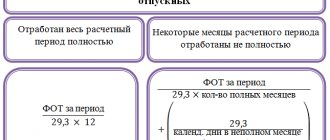The definition of a collective labor dispute is contained in the Labor Code (Article 398). In practice, it is generally understood that this is a conflict between an employer and an employee, several employees or a trade union. There are two mandatory features of the situation under consideration. The first is that disagreements arise within the work team. The second is that the dispute is related to the settlement of working legal relations. Depending on the subject of the collective labor dispute, a procedure for resolving conflict situations is established.
The concept of collective labor disputes
As practice shows, conflict situations arise at enterprises related to the fulfillment by participants of the terms of the employment agreement. If it is not possible to resolve the situation peacefully, then methods of legal regulation of disputes within the work collective come into play.
Kinds
Classification of conflict situations within the workforce:
| Criterion | Varieties |
| For a group of reasons |
|
| By hierarchy of organizations |
|
| Depending on the permit procedure |
|
ATTENTION! Regardless of the reasons and grounds for the emergence of collective disputes (at the initiative of the employer, at the request of the employee, at the request of the trade union), the algorithm for resolving the conflict will be the same in each specific case.
Main causes
The causes of conflicts are usually understood as negative factors in labor discipline that cause indignation among the team or the administration of the enterprise. In legal theory, it is customary to distinguish several categories of such conditions:
- social (related to legal relations within the team);
- legal (violation of working conditions, non-compliance of the contract with current legal rules);
- financial (disproportionate payment for workload, occurrence of economic problems in production).
As practice shows, conflicts most often arise between the parties to a dispute for the following reasons:
- refusal to make amendments to the current employment contract;
- demand for higher wages;
- complaint about violation of current legislation;
- causing material and other damage to participants.
ATTENTION! Participants have 30 days to prepare a complaint and initiate consideration of a collective dispute.
Changes in labor legislation: collective disputes
The consideration and resolution of collective labor disputes is regulated by Ch. 61 Labor Code of the Russian Federation. Federal Law No. 334 FZ of November 22, 2011 “On amendments to the Labor Code of the Russian Federation in terms of improving the procedure for considering and resolving collective labor disputes” (hereinafter referred to as Law No. 334 FZ) introduced amendments to it, which, according to legislators, will promote a more complete realization of the rights of workers to association, collective bargaining, collective labor disputes and their resolution, and ultimately to fair and favorable working conditions and remuneration. After reading the article, you will find out what has changed in labor legislation in this area.
Collective labor dispute
Collective labor dispute is an unresolved disagreement between employees (their representatives) and employers (their representatives) regarding the establishment and change of working conditions (including wages), the conclusion, amendment and implementation of collective agreements, agreements, as well as in connection with the employer’s refusal to take into account the opinion an elected representative body of workers when adopting local regulations (Article 398 of the Labor Code of the Russian Federation).
Consideration of a collective labor dispute for the purpose of its resolution by a conciliation commission, with the participation of a mediator and (or) in labor arbitration is a conciliation procedure.
The day of the beginning of a collective labor dispute is the day of communication or non-communication in accordance with Art. 400 of the Labor Code of the Russian Federation by the employer (his representative) of a decision to reject all or part of the claims of employees (their representatives).
Changing the deadlines for consideration of employee claims
So, before making changes based on Art. 400 of the Labor Code of the Russian Federation, the employer was obliged to accept for consideration the demands of employees sent to him and to inform the representative body of employees about the decision in writing within three working days from the date of receipt of these demands. Now this period has been reduced to two working days. Also, Law No. 334 Federal Law has also shortened the period for considering the demands of trade unions and their associations - previously the employer was given a month to do this, but now it is three weeks. Requirements from the latter have the right to be considered by associations of employers or other representatives of employers determined in accordance with Art. 34 Labor Code of the Russian Federation.
Representatives of employers - federal state institutions, state institutions of constituent entities of the Russian Federation, municipal institutions and other organizations financed from the relevant budgets, when resolving collective labor disputes, are the relevant federal executive authorities or constituent entities of the Russian Federation and other state bodies, local government bodies (Article 34 of the Labor Code of the Russian Federation) .
Changes in the procedure for conducting conciliation procedures
The first instance that should consider a collective labor dispute is a conciliation commission, created from representatives of the parties to the dispute on an equal basis. In accordance with the new edition of Art. 402 of the Labor Code of the Russian Federation, such a commission must be created by order (instruction) of the employer and the decision of the employee representative within up to two working days, if a collective dispute arose at the local level of social partnership. If the dispute arose at other levels of social partnership, a conciliation commission must be created within three working days from the date of the start of the collective labor dispute (previously, the creation period did not depend on the level of the collective dispute and was up to three working days).
Social partnership is carried out at the following levels:
- federal (establishes the basis for regulating relations in the sphere of labor in Russia);
- interregional (the basis for regulating labor relations in two or more constituent entities of the Russian Federation is established);
- regional (the basis for regulating labor relations in a constituent entity of the Russian Federation is established);
- sectoral (the basis for regulating labor relations in the industry (sectors) is established);
- territorial (the basis for regulating labor relations in a municipality is established);
- local (the obligations of employees and employers in the labor sphere are established.)
Before the adoption of Law No. 334 FZ, the responsibility for providing the necessary conditions for the work of the conciliation commission rested with the employer.
Now, in the event of a conflict at all levels of social partnership, except local, such a responsibility is assigned to representatives of employers. By introducing changes to the Labor Code, the legislator reduced the period for considering a collective labor dispute within one organization from five working days to three. If the dispute occurs between trade unions and employers' associations, the period for consideration of the dispute remains the same - five working days.
If agreement is not reached in the conciliation commission, the parties to the dispute begin negotiations on its consideration with the participation of a mediator or in labor arbitration.
The next stage of consideration of a collective labor dispute is the invitation of a mediator. In accordance with the previous version of Art. 403 of the Labor Code of the Russian Federation, the parties could invite a mediator within three working days after the conciliation commission drew up a protocol of disagreements, and if they did not agree on the candidacy of the mediator, then they began negotiations on the creation of labor arbitration.
The resolution of a collective labor dispute with the help of a mediator should not be confused with the mediation procedure, which can be used to resolve individual labor disputes on the basis of the Federal Law of July 27, 2010 No. 193 FZ “On an alternative procedure for resolving disputes with the participation of a mediator (mediation procedure).”
Now, on the basis of Law No. 334 Federal Law, the very next day after drawing up a protocol by the conciliation commission, the parties must negotiate on the participation of a mediator in resolving a collective dispute. If the parties do not agree on this option for resolving the dispute, a protocol on refusal of this conciliation procedure is drawn up and the parties begin negotiations on the next stage - labor arbitration. If the parties to the dispute managed to come to an agreement on inviting a mediator, they must enter into an agreement on this and, within no more than two working days, decide on his candidacy.
It should be noted that Law No. 334 Federal Law reduced the period for consideration of a collective labor dispute with the participation of a mediator from seven working days to three - at the local level and to five - at other levels of social partnership.
In more detail, the sequence of actions when resolving a labor dispute with the help of a mediator is regulated by Order of the Ministry of Health and Social Development of the Russian Federation dated May 15, 2008 No. 230n and Resolution of the Ministry of Labor of the Russian Federation dated August 14, 2002 No. 58 “On approval of Recommendations on the organization of work to consider a collective labor dispute with the participation of a mediator.”
Labor arbitration is a body for the consideration of collective labor disputes. It can be temporary when the parties create it jointly with the relevant state body for the settlement of such disputes to consider a specific dispute, and permanent when it is created by a decision of the tripartite commission for the regulation of social and labor relations to consider collective disputes transferred to it for consideration by agreement of the parties (Article 404 of the Labor Code of the Russian Federation).
The last step in conciliation procedures is labor arbitration. And in this case, Law No. 334 Federal Law reduces the deadlines. Thus, the deadline for creating a labor arbitration has been changed from three working days to:
- two working days, when a collective labor dispute is resolved within the company;
- four working days, when the labor dispute is resolved at other levels of social partnership.
The time frame for establishing arbitration is counted from the date of conclusion of the agreement to resolve the dispute in labor arbitration.
In addition, Law No. 334 FZ specified the composition and definition of labor arbitration regulations. In particular, for a permanent arbitration, the procedure for forming a panel to consider a specific dispute and its rules are determined by the regulations or charter of a permanent labor arbitration, which are approved by the relevant tripartite commission for the regulation of social and labor relations. Law No. 334 Federal Law reduced the period for consideration of a collective labor dispute at the local level of social partnership to three working days, and for other levels the period remained the same and is up to five working days. These deadlines are counted from the date of creation of a temporary labor arbitration or transfer of a collective labor dispute for consideration to a permanent labor arbitration.
If the employer (employer's representative) evades the creation of temporary labor arbitration, transfers the dispute for resolution to a permanent labor arbitration, or participates in the consideration of the dispute by labor arbitration, it is considered that conciliation procedures did not lead to the resolution of a collective labor dispute (Article 406 of the Labor Code of the Russian Federation).
If one of the parties to a collective labor dispute evades participation in the creation or work of a conciliation commission, from negotiations on the consideration of a dispute with the participation of a mediator or in labor arbitration, or from participation in the consideration of a dispute with the participation of a mediator or in labor arbitration, the other party may demand that these conciliation procedures be carried out no later than the next working day after submitting the requirements.
Right to strike: procedure for announcement and conduct
By virtue of Art. 398 of the Labor Code of the Russian Federation, a strike is understood as a temporary voluntary refusal of workers to perform labor duties (in whole or in part) in order to resolve a collective labor dispute. Article 409 of the Labor Code of the Russian Federation, on the basis of the Constitution of the Russian Federation, recognizes the right of workers to strike as a way to resolve a collective labor dispute.
In accordance with the amendments introduced by Law No. 334 Federal Law, workers or their representatives have the right to begin organizing a strike if:
- conciliation procedures did not lead to the resolution of a collective labor dispute (Article 406 of the Labor Code of the Russian Federation);
- the employer (employer's representatives) or employers (employers' representatives) do not comply with the agreements reached by the parties to a collective labor dispute during its resolution (Article 408 of the Labor Code of the Russian Federation);
- the employer (employer's representatives) or employers (employers' representatives) do not comply with the labor arbitration decision.
The exception is cases when, in accordance with the norms of the Labor Code of the Russian Federation, a strike cannot be held.
But more on that later. Let us note that, according to the previously valid version of Art. 409 of the Labor Code of the Russian Federation, workers were allowed to go on strike if the employer (its representatives) evades participation in conciliation procedures. This basis is now excluded.
The procedure for calling a strike has undergone minor changes. So, on the basis of Art. 410 of the Labor Code of the Russian Federation, the decision on the participation of workers in a strike declared by a trade union (association of trade unions) is made by a meeting (conference) of workers of a given employer without conducting conciliation procedures. Before the adoption of Law No. 334 FZ, a meeting of employees was considered valid if at least half of the total number of employees was present. Now the presence of more than half of the employer's employees is required.
An innovation introduced into the Labor Code by Law 334 Federal Law is the procedure for conducting a warning strike. If previously, after five calendar days of work of the conciliation commission, it was possible to declare a one-hour warning strike once, of which the employer must be notified in writing no later than three working days in advance, the following is now provided: a warning strike is allowed when considering a collective labor dispute at a local level of social partnership after three calendar days of work of the conciliation commission with a warning to the employer in writing no later than two working days, and when considering a collective labor dispute at other levels of social partnership - after four calendar days of work of the conciliation commission with a warning to the employer in writing not later than three working days.
Law No. 334 Federal Law has reduced the period for notifying an employer about a strike: if previously this period was 10 calendar days, now workers must notify the employer no later than five working days in advance. And if a strike is declared by a trade union (association of trade unions), an association of employers, and other representatives of employers must be warned in writing no later than seven working days in advance (Article 410 of the Labor Code of the Russian Federation).
The employer warns the relevant state body for the settlement of collective labor disputes about the upcoming strike (Article 410 of the Labor Code of the Russian Federation).
The decision to declare a strike should indicate:
- a list of disagreements between the parties to a collective labor dispute, which are the basis for declaring and conducting a strike;
- date and time of the start of the strike, its expected duration and the expected number of participants. In this case, the strike cannot be started later than two months from the date of the decision to declare a strike;
- the name of the body leading the strike, the composition of employee representatives authorized to participate in conciliation procedures;
- proposals for the minimum necessary work (services) performed during the strike by employees of an organization (branch, representative office or other separate structural unit), individual entrepreneur.
After the adoption of Law No. 334 FZ, such a decision does not need to indicate the expected duration of the strike.
The body leading the strike has the right to suspend it. At the same time, the old version of Art. 411 of the Labor Code of the Russian Federation stipulates that the employer and the relevant state body for the settlement of collective labor disputes must be notified of the resumption of the strike no later than three working days. In accordance with the new edition of this norm, they must be warned in writing about the resumption of the strike no later than two working days, and about the resumption of the strike declared by the trade union (association of trade unions), the association of employers, other representatives of employers and the relevant state body for the settlement of collective labor disputes must be notified in writing no later than three working days.
Responsibilities of the parties to a collective labor dispute during a strike
The previous version of the Labor Code stated that during a strike, the parties to a collective labor dispute are required to conduct conciliation procedures, which meant that the conciliation commission could carry out its activities even when a strike was declared and carried out. Now, based on the changes introduced by Law No. 334 Federal Law, during the period of a strike, the parties to a collective labor dispute are obliged to continue resolving this dispute through negotiations (Article 412 of the Labor Code of the Russian Federation).
As before, the employer, executive authorities, local government bodies and the body leading the strike are obliged to take measures within their control to ensure public order during the strike, the safety of the property of the employer and employees, as well as the operation of machinery and equipment, the stoppage of which represents a direct threat to human life and health.
A list of the minimum necessary work (services) performed during a strike by employees of organizations and individual entrepreneurs, whose activities are related to the safety of people, ensuring their health and vital interests of society, in each sector (sub-sector) of the economy is developed and approved by the federal executive body, on which is entrusted with the coordination and regulation of activities in the relevant sector (sub-sector) of the economy, in agreement with the relevant all-Russian trade union.
The procedure for developing and approving a list of the minimum necessary work (services) in a sector (sub-sector) of the economy, provided during strikes in organizations, branches and representative offices, is determined by Decree of the Government of the Russian Federation of December 17, 2002 No. 901.
The executive authority of a constituent entity of the Russian Federation develops and approves, in agreement with the relevant territorial associations of trade union organizations (associations of trade unions), regional lists of the minimum required work (services), specifying the content and determining the procedure for applying federal sectoral lists of the minimum required work (services) on the territory of the relevant entity .
The inclusion of a type of work or service in the minimum must be motivated by the likelihood of harm to health or a threat to the lives of citizens; for example, it cannot include work or services that are not provided for in the relevant minimum lists.
After the adoption of Law No. 334 FZ, the minimum necessary work (services) performed by workers during a strike is determined by agreement of the employer (employer representative) and the representative body of workers together with the local government on the basis of lists of the minimum necessary work (services) within three days from the date of adoption decisions to call a strike. Previously, five days were given for this. Based on the previous version of Art. 412 of the Labor Code of the Russian Federation, if the minimum necessary work (services) was not provided, the strike could be declared illegal. In accordance with the new edition of this norm, in this case the strike may be suspended by a court decision until the workers and their representative body comply with the relevant requirements.
Illegal strikes
According to Art. 55 of the Constitution of the Russian Federation are illegal and strikes are not allowed:
- during periods of martial law or a state of emergency or special measures in accordance with the legislation on a state of emergency; in the bodies and organizations of the Armed Forces of the Russian Federation, other military, paramilitary and other formations, organizations (branches, representative offices or other separate structural units) directly in charge of ensuring the country's defense, state security, emergency rescue, search and rescue, fire fighting, warning or liquidation of natural disasters and emergency situations; in law enforcement agencies; in organizations (branches, representative offices or other separate structural units) directly servicing particularly dangerous types of production or equipment, at ambulance and emergency medical care stations;
- in organizations (branches, representative offices or other separate structural units) directly related to the livelihoods of the population (energy supply, heating and heat supply, water and gas supply, aviation, rail and water transport, communications, hospitals), in the event that strikes creates a threat to the defense of the country and the security of the state, life and health of people. A strike is illegal if it was declared without taking into account the deadlines, procedures and requirements provided for by the Labor Code of the Russian Federation.
The decision to declare a strike illegal is made by the courts (territorial, regional, autonomous region and autonomous okrugs, supreme republics) at the request of the employer or prosecutor.
It is brought to the attention of workers through the body leading the strike, which is obliged to immediately inform the strike participants about the recognition of the strike as illegal or about the refusal of the applicants to recognize the strike as such. If the court has declared the strike illegal, workers must immediately comply with the court decision: stop the strike and begin work no later than the next day after delivering a copy of the said court decision to the body leading the strike. The most significant change in Art. 413 of the Labor Code of the Russian Federation affected the timing of postponing the start and suspension of a strike. Thus, now, in the event of an immediate threat to the life and health of people, the court has the right to postpone a strike that has not started for up to 15 days, and suspend a strike that has begun for the same period. Previously, this period was 30 days.
In cases of particular importance for ensuring the vital interests of the Russian Federation or its individual territories, the Government of the Russian Federation has the right to suspend the strike until the issue is resolved by the relevant court, but for no more than ten calendar days.
Other provisions
The guarantees and legal status of workers in connection with a strike have not changed after the adoption of Law No. 334 FZ. As before, an employee’s participation in a strike cannot be considered a violation of labor discipline and grounds for termination of an employment contract, except in cases of failure to fulfill the obligation to stop the strike. During the strike, the workers participating in it retain their place of work and position.
The employer may not pay workers wages during their participation in the strike, with the exception of workers engaged in performing a mandatory minimum of work (services) (Article 414 of the Labor Code of the Russian Federation).
For workers who did not participate in the strike, but due to it were not able to perform their work and who declared in writing about the start of downtime in connection with this, payment for downtime through no fault of theirs is made in the manner and amount provided for in Art. 157 of the Labor Code of the Russian Federation - at least 2/3 of the average salary. Since there was an obligation to negotiate the use of one or another conciliation procedure, minor changes were made to Art. 418 of the Labor Code of the Russian Federation, on the basis of which it is now necessary to document the actions of the parties to a collective labor dispute not only when resolving a dispute, but also when considering it: agreements and decisions made in connection with the consideration and resolution of this dispute are documented in protocols by representatives of the parties to a collective labor dispute, conciliation bodies, the body leading the strike.
Summarize
As we can see, the innovations introduced into the Labor Code by Law No. 334 Federal Law concerning the consideration and resolution of collective labor disputes do not introduce significant changes to the current procedure. However, the new edition of certain provisions improves the situation of workers by reducing procedural time frames.
Among other things, quite a lot of attention is paid to labor arbitration, as well as negotiations when one of the parties evades participation in conciliation procedures.
Bodies for consideration and settlement of collective labor disputes
Depending on the stated requirements, the consideration of disputes may be accompanied by the involvement of various participants and specialized organizations.
Who can take part in collective disagreements:
| Intermediaries | Features of participation |
| Peaceful stage (complainant and respondent only) | Oral conversation is not enough; attempts by participants must be confirmed in writing. The injured party prepares a written complaint addressed to the defendant, where he sets out the essence of the collective dispute. The defendant has three days to prepare a response. Waiting may be accompanied by strikes. If there is no response to the complaint, the injured party can move on to the next stage of resolving collective disputes. |
| Involvement of an intermediary | The essence of the situation is to involve an independent participant in the procedure, who prepares a proposal for the parties to the dispute. The proposal is prepared in writing and contains advice and recommendations for partial or full acceptance of the complainant's conditions. |
| Labor Dispute Commission | On the basis of each enterprise, in order to reconcile conflicting participants, temporary or permanent commissions are formed to resolve disputes. The CCC consists of ten participants from each side. Representatives are chosen directly by the conflicting participants from among the employees or from the trade union. The decision of the conciliation commission is documented in a protocol of disagreements. |
| Court | Additionally, it is possible to resolve disputes with the participation of a mediator in court. The judge makes a decision regarding illegal dismissal, as well as in the area of significant violation/restriction of the rights or interests of workers. Another category of grounds for transferring a case to trial is the infliction of material harm by illegal actions. |
Procedure for resolving an individual labor dispute
To begin pre-trial proceedings, you can contact the other party directly. However, this is not necessary; you can immediately submit an application to the commission. She must register the statement, otherwise the dispute will not be considered open. After this, the commission members will consider the problem. They have 10 working days to do this, and during the consideration of the case, the CCC has the right to call witnesses, demand certain documents and even invite specialists for consultation.
The decision will be made by secret ballot. After this, the commission secretary will prepare a written decision. This document must indicate:
- Name of organization and division.
- Passport details and position of the person who applied for help from the commission.
- The date the dispute began, the date the issue was considered, the cause of the conflict.
- Passport details of all commission members, as well as other people who participated in the meeting.
- The decision and its mandatory justification with references to legislation and internal regulations.
- Voting results.
After the commission makes a decision, the interested person can appeal it in court: there are only 10 days to do this. After the specified period, the commission’s decision will have to be executed, unless the court accepted the appeal. In essence, the decision is an executive document. On its basis, the bailiff enforces the decision. Of course, unless the defendant complied with the conditions voluntarily.
Procedure for resolving collective disputes
There are several stages in resolving disputes in legal relations between employees. In particular, the parties will have to go through the following stages:
- The emergence of grounds for preparing a complaint. Depending on who initiates the proceedings, there are different deadlines for filing an appeal. The employee has 30 days to file a formal complaint. The administration of the enterprise has four months, which is due to the difficulties of identifying employee violations.
- Sending a paper outlining the essence of the violation. The letter is registered in the incoming correspondence journal, which confirms the date the request was issued.
- If there is no response within three days, the injured party may initiate the formation of a CCC. For this purpose, an official notice is being prepared to the other party to the collective dispute, indicating the need to create a commission.
- Formation of the CTS and selection of participants. Up to seven days are allotted for a decision, after which the victim can submit a written petition to the court.
ATTENTION! It is possible to submit a claim directly to court, without involving a specialized commission.
If the dispute goes beyond the scope of disciplinary settlement, in addition to violators, administrative liability rules may be applied, which implies penalties in relation to the organization itself and the official who committed the violation. There may also be civil liability, which obliges compensation for damage caused.
What it is?
The very concept and types of collective labor disputes include disagreements
, caused by unsatisfactory wages, non-payment of money for work performed, poor working conditions, illegal mass dismissal and so on.
Article 398
. Basic concepts.
Collective labor dispute - unresolved disagreements between employees
(their representatives) and
employers
(their representatives) regarding the establishment and change of working conditions (including wages), the conclusion, amendment and implementation of collective agreements, agreements, as well as in connection with the employer’s refusal to take into account the opinion of the elected representative body of employees when adopting local regulations acts.Conciliation procedures - consideration of a collective labor dispute for the purpose of its resolution by a conciliation commission
, with the participation of a mediator and (or) in labor arbitration.
The day of the beginning of a collective labor dispute is the day of communication of the decision of the employer (his representative) to reject all or part of the claims of workers (their representatives) or failure to report by the employer (his representative) in accordance with Article 400
of this Code of its decision.
Strike - temporary voluntary refusal
employees from performing their labor duties (in whole or in part) in order to resolve a collective labor dispute.
There are many reasons why a dispute may begin. To organize them, the law provides for several classifications.

Based on the level:
- At the local level;
- At the territorial level;
- At the regional level;
- At the interregional level;
- At the federal level.
It is important to note that a strike cannot be used
at all levels, except
local
. In such a situation, advocacy can be carried out at the organizational level.
There is also a classification that distinguishes the subject of the dispute:
- On changing or establishing new working conditions that do not satisfy employees;
- On changes, conclusion or implementation of agreements and collective agreements;
- On the refusal of employers to take into account the opinion of the employee representative in the process of adopting local regulatory requirements.
The last category depends on the method of resolving the labor dispute. They can be divided into only two types
- disputes, the settlement of which is possible without the use of a strike, as well as with the use of a strike.






